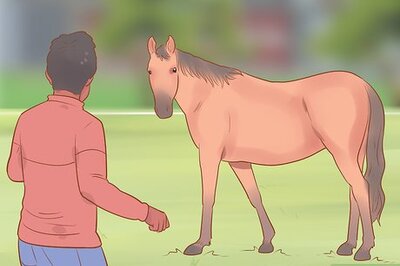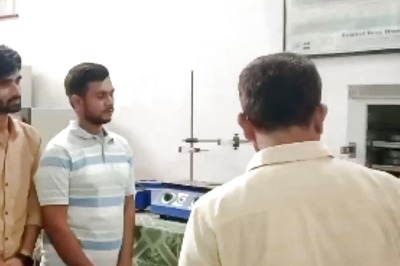
views
Authorities in Queensland are currently conducting an investigation into a potential serial crocodile killer. The investigation was initiated following an anonymous phone call taking responsibility for the decapitation of two crocodiles found in the far north region of the state over the past two months, The Guardian reported.
Amid the curious development, let’s take a look at the case and the psychology behind such acts:
Crocodiles Decapitated
David White, a local crocodile tour operator, received the call from an unidentified individual shortly after he discovered the severed head and spine of a female saltwater crocodile named Lizzie. Lizzie, who was approximately 40 years old, had been under White’s observation for over 20 years. Her remains were found on the banks of the Daintree River in May.
“He said, ‘I am the apex predator now, I killed a crocodile,’” White told the publication.
White expressed his deep fondness for Lizzie, the decapitated female crocodile found on the banks of the Daintree River. Lizzie was named after Queen Elizabeth ‘due to her peculiar habit of waving like the queen,’ White explained.
According to White, the anonymous caller confessed to decapitating both Lizzie and another larger crocodile discovered decomposing in Cow Bay in April. In the Cow Bay incident, the crocodile’s head was taken while the body was left behind.
While the exact cause of Lizzie’s death is still being investigated, White believes that the clean removal of her head and spine indicates human involvement, the report said.
The Queensland environment department spokesperson stated on Friday that authorities are examining the potential connection between these two incidents. They expressed concerns that these protected animals are being deliberately targeted and killed, raising alarm about the deliberate harm inflicted on these creatures.
About Saltwater Crocodiles
The saltwater crocodile, scientifically known as Crocodylus porosus, is a species of crocodilian that inhabits saltwater environments, brackish wetlands, and freshwater rivers. Its natural range extends from the east coast of India across Southeast Asia and the Sundaic region to northern Australia and Micronesia. Currently, the saltwater crocodile is classified as Least Concern on the IUCN Red List since 1996, indicating that it is not at immediate risk of extinction.
Historically, the saltwater crocodile was heavily hunted for its valuable skin across its entire range until the 1970s. This exploitation posed a significant threat to its population.
During the 1940s, 50s, and 60s, there was extensive harvesting of the Saltwater Crocodile population in northern Australia. The severe decline in their numbers prompted the implementation of management measures by both the individual states and the Commonwealth government. In 1970, the Saltwater Crocodile received full protection in Western Australia, followed by protection in the Northern Territory in 1971 and in Queensland in 1974, as per a report by the DCCEEW, Australia.
Before Humans, It’s Always Animals…
In addition to their brutal acts against numerous individuals, many serial killers share another disturbing characteristic: a history of animal abuse, according to a report by A&ETV.
The FBI has noted a strong correlation between cruelty towards animals and interpersonal violence between humans.
Serial killers often engage in the torture or killing of small animals from a young age, and individuals who commit child abuse or domestic violence frequently harm pets within the household as well. John Thompson, the deputy executive director of the National Sheriff’s Association, highlighted in a 2016 interview that if someone is causing harm to an animal, there is a high probability that they are also inflicting harm on a human, the report said.
Dr Chris Hensley, an associate professor of criminal justice at the University of Tennessee at Chattanooga told A&E that individuals who harm animals often target those they perceive as weaker. Many serial killers experience feelings of rejection from their parents or someone they have an emotional attachment to, whether real or perceived.
Instead of directing their anger towards the person who rejected them, they may choose to exert power and control over something they perceive as weaker, often animals. Harming animals becomes a way for them to assert dominance and establish a sense of power. This behavior reflects their underlying psychological dynamics and the desire to exert control in a situation where they feel vulnerable or rejected.




















Comments
0 comment